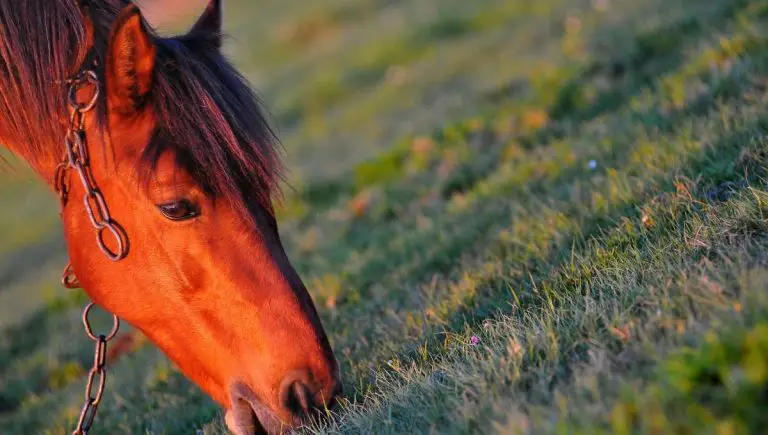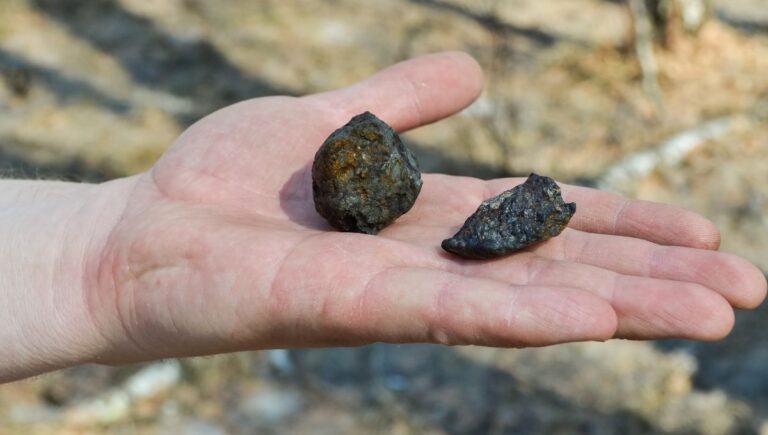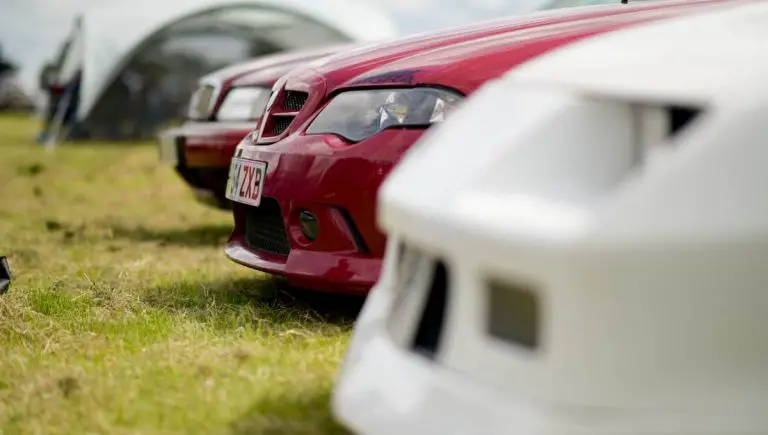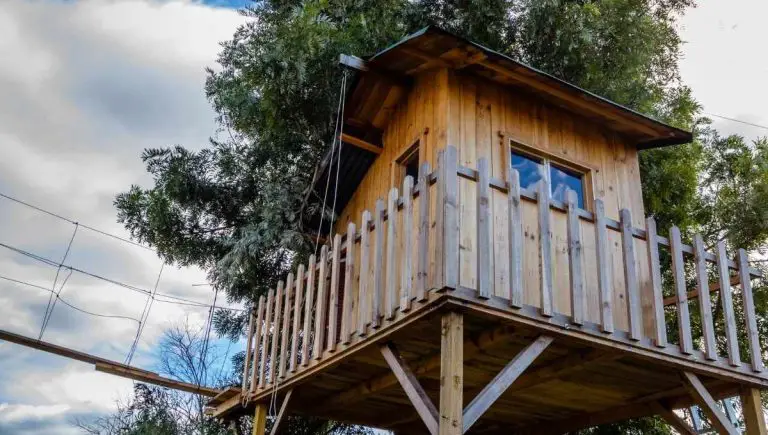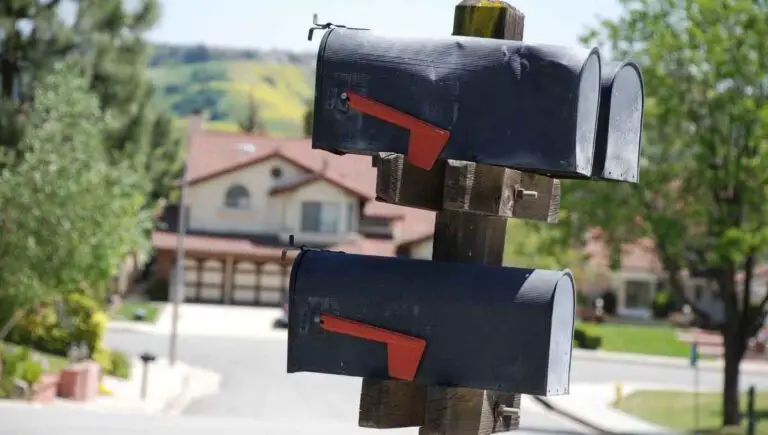Is It Illegal to Bury Money in Your Yard? (We Asked the Law)

We all want to keep our hard-earned money safe, and some will take extreme measures to do it. Banks can crash, the world can fall apart, and we’re definitely not up for that. So, this may lead you to wonder, is it illegal to bury money in your yard?
You can legally bury money in your yard, as long as you got the funds legally. Be cautious, however. If you bury it directly in the ground with nothing covering it, you may risk damaging it. Damaging money violates federal law, so you shouldn’t take this matter lightly.
Surely, there are other safer ways to keep your money hidden without transgressing the law or risking having it disappear. So, in this article, we’ll discuss if it’s legal to hide money, what you can do to bury money, and how you can store cash safely to avoid damaging it.
This post contains affiliate links from Amazon and other stores. This means Yard Blogger may earn a commission if you make a purchase using any of our links. Please refer to our full affiliate disclosure policy for full details.
Here’s a Quick Pro Tip!
It’s possible to bury money in your yard, but you must take extra safety precautions to protect it. Thus, you need to know all the details regarding how to protect it correctly before throwing it in the mud.
You’ll likely need these to protect your money before hiding it in your yard:
1. Air Tight Container – Since they don’t allow any air or oxygen to pass, these containers are exceptional at keeping your money looking new.
2. Waterproof Jar w/ Lid – Tight, waterproof, and dry. Avoid mold growing in your cash by using this!
3. Cash Plastic Wrap – Practical for every buck, you can use it to protect your cash before safely protecting it with another tool.
Buried Money
Before getting into the details about how to bury or hide your money correctly, we have to make sure it’s feasible and legal. So, let’s talk about what to do and avoid when burying money in our yards.
Can Money Be Buried?
It’s possible to bury your money underground, but it has to be done in a specific way to avoid damaging or breaking it. Thus, burying money comes with many risks and is not a recommended practice.
One major reason you should avoid damaging money is that doing so may constitute a crime that violates federal law. But, of course, if you decide to try to do it, make sure to understand how to bury money safely before attempting anything.
Is It Legal to Bury Money?
Burying money isn’t an illegal act in itself, but the circumstances in which you bury it may make it illegal. For example, if you bury money after retrieving it from illegal activities, there’s a high chance that you’ll be penalized by law.
You can bury your hard-earned money without worrying about future consequences. Besides, back in the day, people used to bury their valuable assets because banks were either non-existent or untrustworthy.
However, you can’t bury money directly on the ground without protecting it since it is prone to damage. Altering, writing on, or damaging money in any way is a serious crime that can be seen as a direct offense against the State. So, you should avoid anything that causes it.
Is Keeping Cash at Home Illegal?
Keeping cash at home is not illegal, so long as it’s done to evade taxes. Generally, people prefer to keep some cash in their houses just in case something big happens, such as a natural disaster or their bank crashing.
Since the abovementioned disasters are possible, people prefer to reduce their risks by retaining enough money to cover at least one or two months of expenses. This way, they won’t be heavily affected if the bank crashes or another huge thing happens.
How Can I Hide Money in My Yard?
You can hide money by either burying your money in the ground’s soil or burying it in the soil of a potted plant. Either option is preferable, although you should do it correctly to avoid exposing the money to future damages.
Here’s an easy way to hide your cash:
- Place your cash in a Ziploc bag and then release the air from inside it by pressing it flat against a surface or your chest.
- Place the money bag inside a small air-tight canister.
- Dig a hole in the ground or the pot’s soil, and place the money bag into the hole.
- Cover it well and make sure nothing seems suspicious.
How Do You Hide Money?
You can easily hide money in many inconspicuous places, such as a fake vent, a fake outlet, a fake light switch, a fake soda can, or behind a drawer. You can also hide your money in your yard by burying it in the soil.
The most important thing is never to forget where you’ve placed your money. Moreover, if you find these places too risky for comfort, you can always try burying your money in your yard. Remember to protect the money with a bag and a canister to avoid damaging it.
How Do You Bury Cash Safely?
You should place your money inside a sealed bag to protect it from outside elements before burying it safely. Also, you must put the money bag inside a small container that’ll add extra protection. This has to be done so that the money isn’t damaged.
Use a Ziploc bag to add the first layer of protection to your cash, then put it in a small container to add another extra layer. Doing this will prevent it from receiving damage from outside elements, such as water or humidity.
Where Can I Hide a Lot of Money?
You can hide a lot of money in less frequented places around your home, such as a pantry, the bookshelves, closets, or even by burying it in your backyard. However, protecting them in a bank institution is more practical.
Even though hiding money in diverse places is practical if you want to save for emergencies, money is much more secure in a bank. Since it will be deposited in your account, your money has a lower risk of being stolen or forgotten.
Where Is a Good Place to Hide Money in Your Yard?
You should bury money in areas of your yard that aren’t likely to be dug up in the future. These spots include near a septic tank, an outlet, or a well. You’ll want to place your funds in a less-frequented area to prevent them from being found unintentionally.
So, it’s best to choose a corner where you’ll know where it is and where it is unlikely that a guest will pay attention. Also, it’s recommended to put it where inspectors can find it if someone does a backyard project in the future.
How to Bury Money Correctly
Now that you know whether or not it’s legal to bury your money, you have to understand the proper process of burying. Surely, you’ll want to know how to keep it damage-free. So, let’s explore that below.
What Happens if You Bury Money?
Depending on how you do it, your money can degrade after burying if it isn’t properly sealed. Additionally, cash is likely to lose value over time. Keeping it outside a bank is not good for the state’s economy, which is why many financial advisors don’t recommend it.
The reason why hidden money can lose value is due to inflation. For example, if you hide a thousand dollars in cash bills in your backyard, it won’t create interest and, therefore, won’t increase value with time.
Moreover, money is made from fabric materials, which can degrade and damage if not stored or buried correctly. Therefore, knowing how to properly bury your money before trying it is essential, especially if you want to avoid going against the law.
How Long Can Money Stay Buried?
If you bury your money correctly, it can stay buried for a couple of decades. However, how long you should leave it will depend on how protected it is from outside moisture, which can cause it to rot and get damaged over time.
Additionally, an individual dollar bill has different lifespans described by the Federal Reserve. According to them, a single one-dollar bill can last up to approximately 6.6 years, while a single 100-dollar bill can last up to 22.9 years.
Knowing this can help you identify if your current bills will last longer or shorter than you had planned. Ideally, it’s best to avoid possible degrading by protecting it responsibly and ensuring it’s safely intact.
How Long Will Money Last if You Bury It in the Ground?
The longevity of money will highly depend on the way it was buried. If your money was buried correctly sealed, it should remain intact for approximately two decades. But, if you buried your money without sealing it correctly, it may last less.
Money is made from fiber materials, so anything that contributes to moisture may cause it to rot. Ironically, heat can also damage it if it’s left exposed over time. You can prevent this by enclosing it correctly without leaving any compromising gaps.
Why Do You Wrap Money in Plastic?
You want to wrap your money in plastic because it’s not directly exposed to external elements found in the soil when it’s buried. However, this isn’t enough, as you still need to add extra protection by using a container.
Also, it’s not responsible to leave your money unprotected. You could lose it if it receives damage with time, so you must avoid anything that can damage it. It’s better to be safe than sorry!
Can Money Mold?
Money can get mold if it’s left in compromising conditions, such as a humid environment with easy access to oxygen and other thriving elements. Thus, it’s always recommended to store your money in a dry place, where it is unlikely to grow mold.
Since money is made out of fibrous materials, it can easily grow mold if left in a place where it is likely to get damp. Unfortunately, mold loves humid and wet environments, so the way to prevent them is to leave your money somewhere that does not have those characteristics.
How to Store Money Without It Molding
You can store your money in a dry-safe or in an air-tight container to prevent it from molding. Since mold and mildew need oxygen to thrive, it’s unlikely that they’ll grow in these places because they lack what they need to survive.
If you’re considering hiding your money in your backyard, always remember to store it in an air-tight container that doesn’t store oxygen inside, nor does it expose the money to wet surfaces. Also, try to do the same thing if you plan to hide it in the corner of your house.
How to Bury Money Without It Rotting
You can bury your money without the risk of rotting by using a Ziploc bag to store it, a container jar that doesn’t allow oxygen to penetrate, and PVC plastic that offers extra protection from exposing it to damaging external elements.
Of course, you should release the remaining air from inside the bag by pressing it down on a flat surface (after putting your money inside) or by using a special vacuum that sucks air from plastic bags.
Other Methods of Safekeeping
While burying money in your yard using an air-tight canister is convenient, there are other methods you’ve probably not thought of trying. So, let’s explore a few of those methods below.
How Do You Bury Money in Mason Jars?
You can bury money in a mason jar by putting the cash inside a plastic wrap and then placing it inside the jar. The jar should be air-tight and waterproof so that your money isn’t exposed to wet or humid surfaces that may cause it to rot quickly.
Additionally, ensure that no air is left inside the plastic wrap since mold can grow in good places with humidity and oxygen. It’s best to avoid mold by keeping this advice in mind while wrapping your cash.
Are There Underground Money Safes?
Although not exactly “underground,” money safes can be a good alternative to keep your money and other valuables safe and risk-free. Generally, they’re referred to as in-ground safes, and you can find them online.
These safes are usually built on enclosed concrete to be naturally concealed within or near your home. So, it’s not supposed to be visible to plain eyesight, which is convenient because it adds a good sensation of safety.
Are There Airtight Containers for Burying Money?
Air-tight containers were not specifically designed to bury money because they were designed to store many items to protect them. Their use is more universal because you can store many items, including food items.
Air-tight containers tend to be versatile. They don’t offer one storage purpose; they offer many. So, they are not strictly exclusive for burying money, although they’re a good option when choosing a compartment that protects it very well.
Related Questions
What Do I Do if I Found Buried Money?
If you find buried money, the right thing to do is hand it over to the police or keep it until someone claims it. If a person claims it, you must return it without further delay because this is what the law establishes under these circumstances.
According to many US laws, someone who finds lost or abandoned property can get to keep it until someone claims it to be theirs. However, it all depends on the type of money you found and how old it was since it can also fall into the category of a treasure trove.
Common law defined “treasure trove” as gold or silver in any form that its rightful owner previously hid but somehow forgotten. So, in this case, you can keep it unless someone claims it.
What Do You Do if You Found Lots of Cash?
It’s highly recommended that you consult your local laws for the best way to proceed if you find lots of cash. For example, across the United States, it’s usually established by law that a person who finds lost money should return it to the police and have them inspect it.
Some states may charge you for theft if you don’t follow the proper protocols established by these regulations. So, we highly recommend that you consider doing the right thing, no matter how tempting it is to use it for your needs or expenses.
Final Thoughts
Burying money in your yard seems like a good idea but comes with many risks. Therefore, you must understand how to do it properly to avoid damaging it. For example, you can first seal your money in a plastic bag or wrap, then use an air-tight canister to place it inside, and finally bury it safely in a good spot you’ll always remember.
Essentially, it’s best to use some type of in-ground safe to keep your money protected. After all, they’re more reliable, and only you get to know the password. We hope these tips will help you if you decide to keep your funds in the ground, but remember, banks are also a safe place, plus they’ll give you interest on your banked funds!






